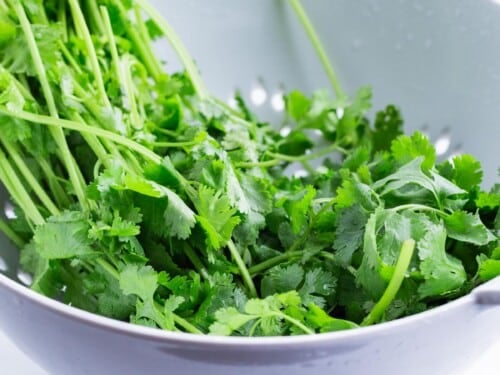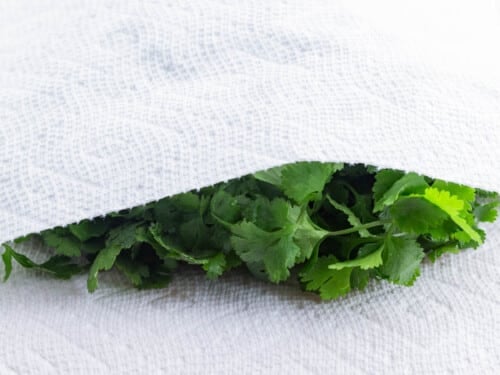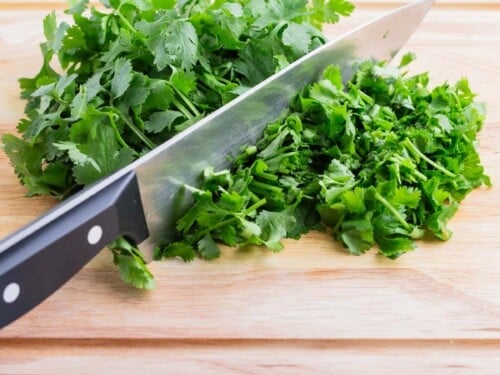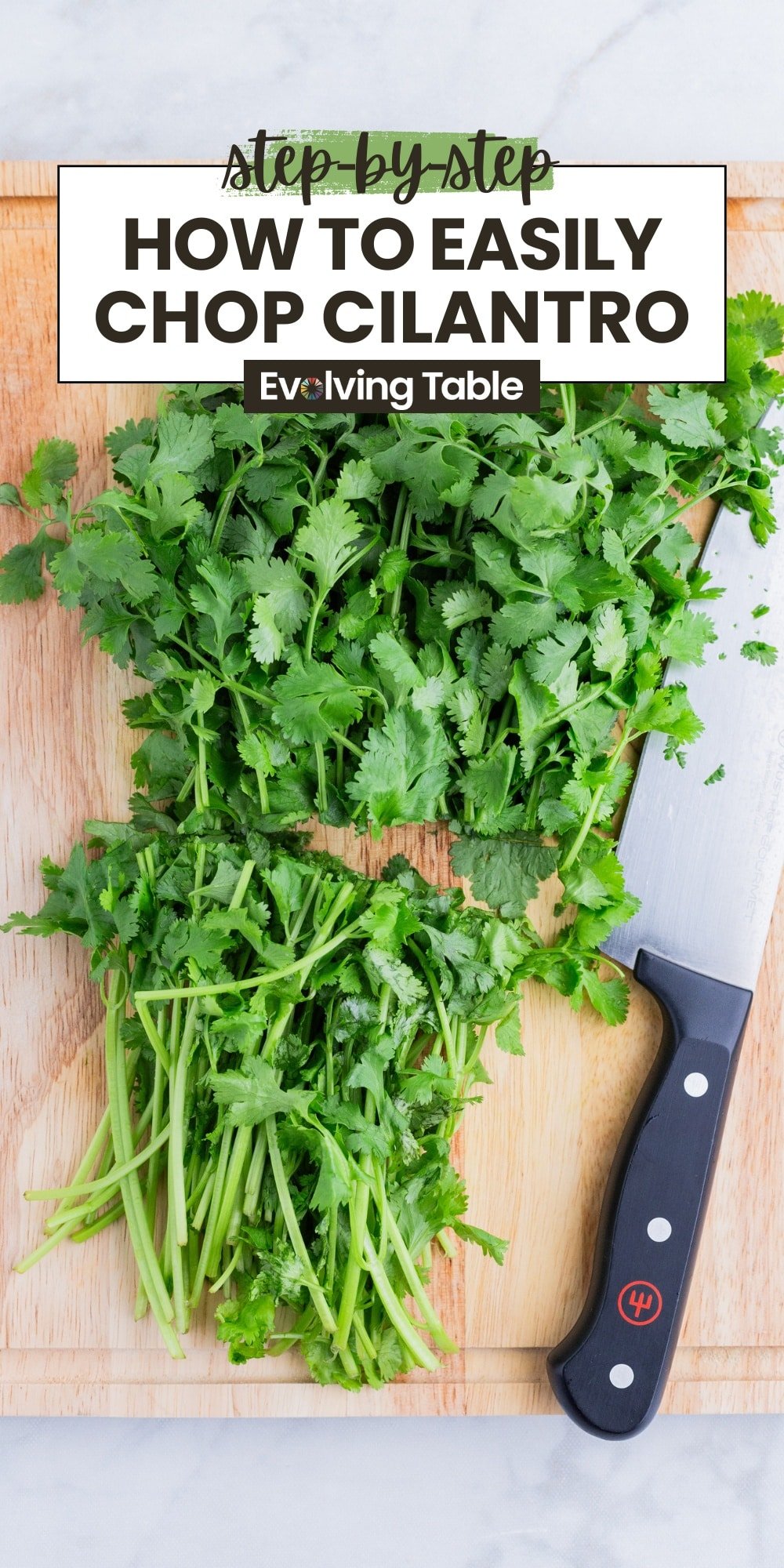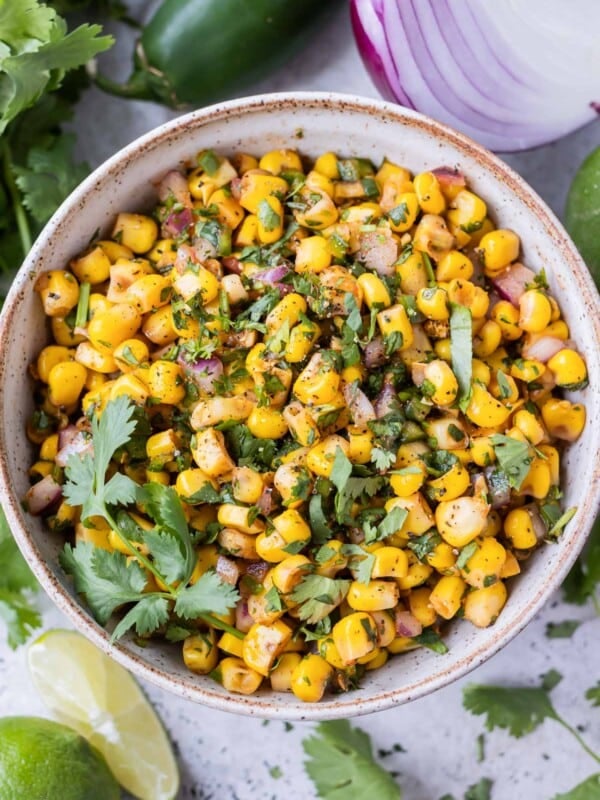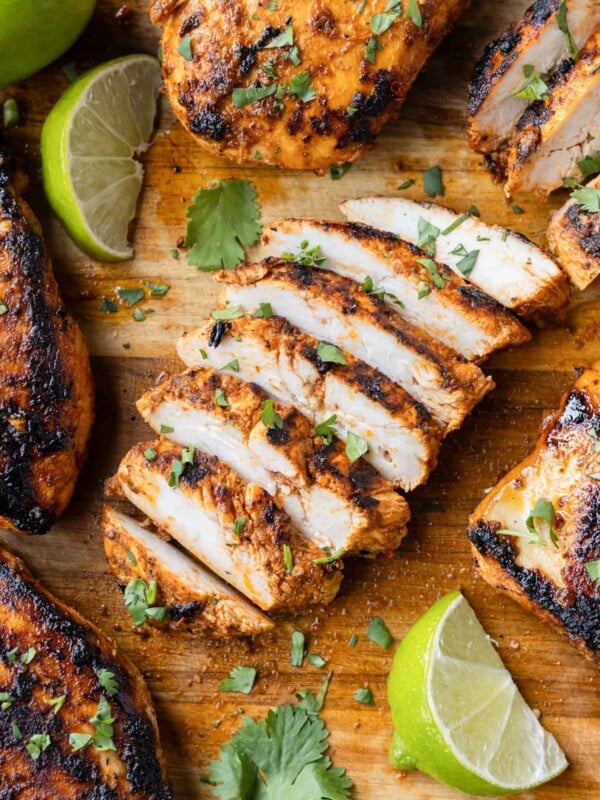Cilantro is a fresh herb that adds a bright and citrusy flavor to so many dishes. It’s rather easy to chop it up and mix it into your favorite Mexican and Mediterranean recipes — if you know a few key knife techniques and tricks.
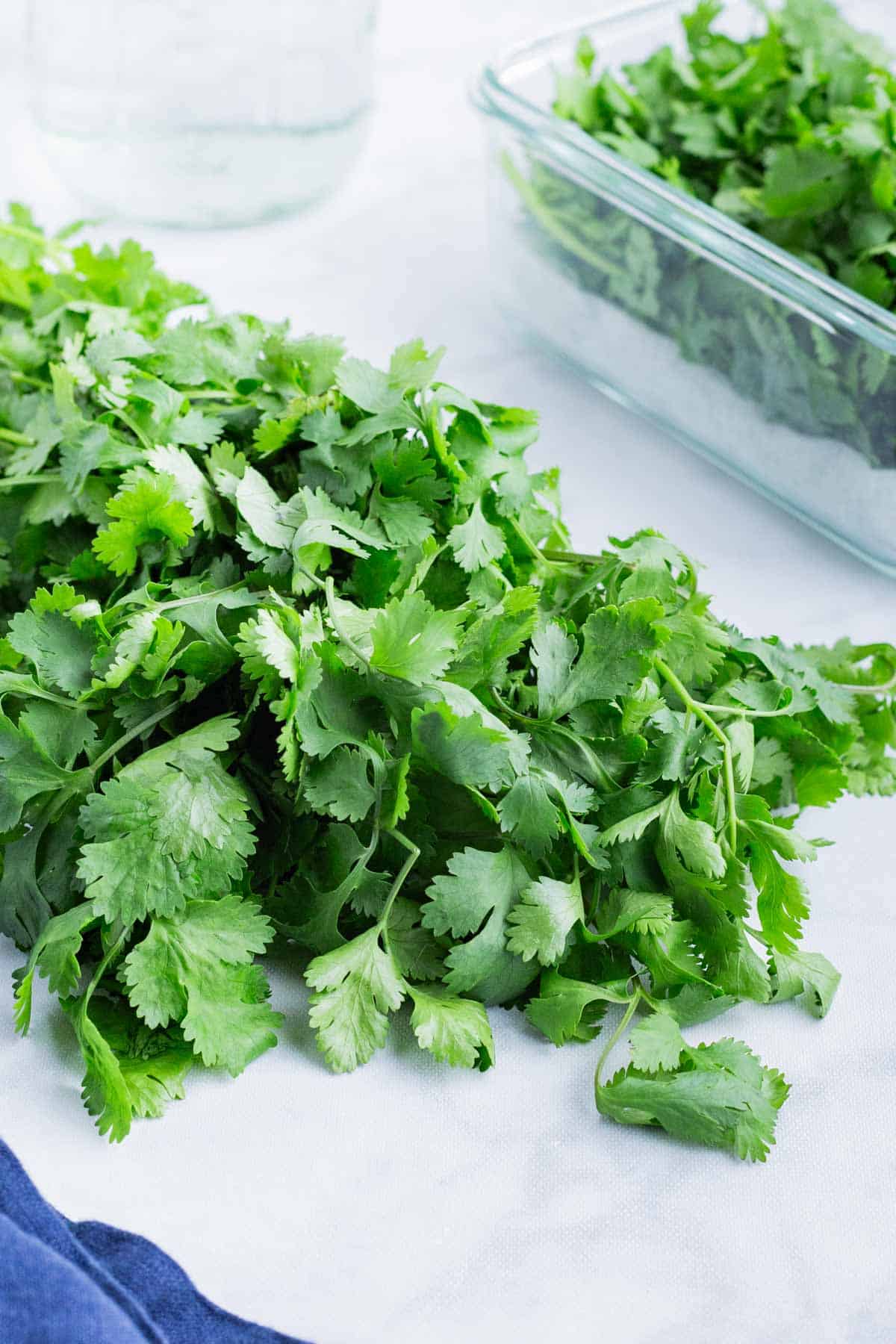
Table of Contents
Having grown up in Southeast Texas, I’ve been heavily influenced by Mexican cuisine. Because of this, cilantro is my go-to herb when it comes to adding freshness to just about ANY dish.
Over the years I’ve learned how to quickly rinse and chop it to add to classic dishes like Roasted Tomato Salsa and Cilantro Lime Rice or to add as a finishing garnish for a bright and zesty contrast to heavier Roasted Sweet Potatoes or this Mexican Beef and Rice Skillet.
My one big tip: make sure the cilantro leaves are REALLY dry before chopping. If they’re still wet, it will be harder to finely chop the delicate leaves. A salad spinner works great, or rinse it ahead of time and store cilantro in the refrigerator until ready to use.
Which part of the cilantro do you use?
It’s a long held myth that you need to completely remove cilantro leaves from the stems. The smaller, thinner cilantro stems towards the top of the bunch have just as much flavor as the more delicate leaves.
If you don’t like the coarser texture, sure, you can remove those finer stems. But if you’re in the flavor game, keep those stems attached to the leaves to get more cilantro flavor AND less waste!
However, as you go down the stem, it gets thicker and woodier and starts to lack flavor.
How far down do you cut cilantro? You can cut and discard the thicker part of the stem where the branches of the cilantro leaves end.
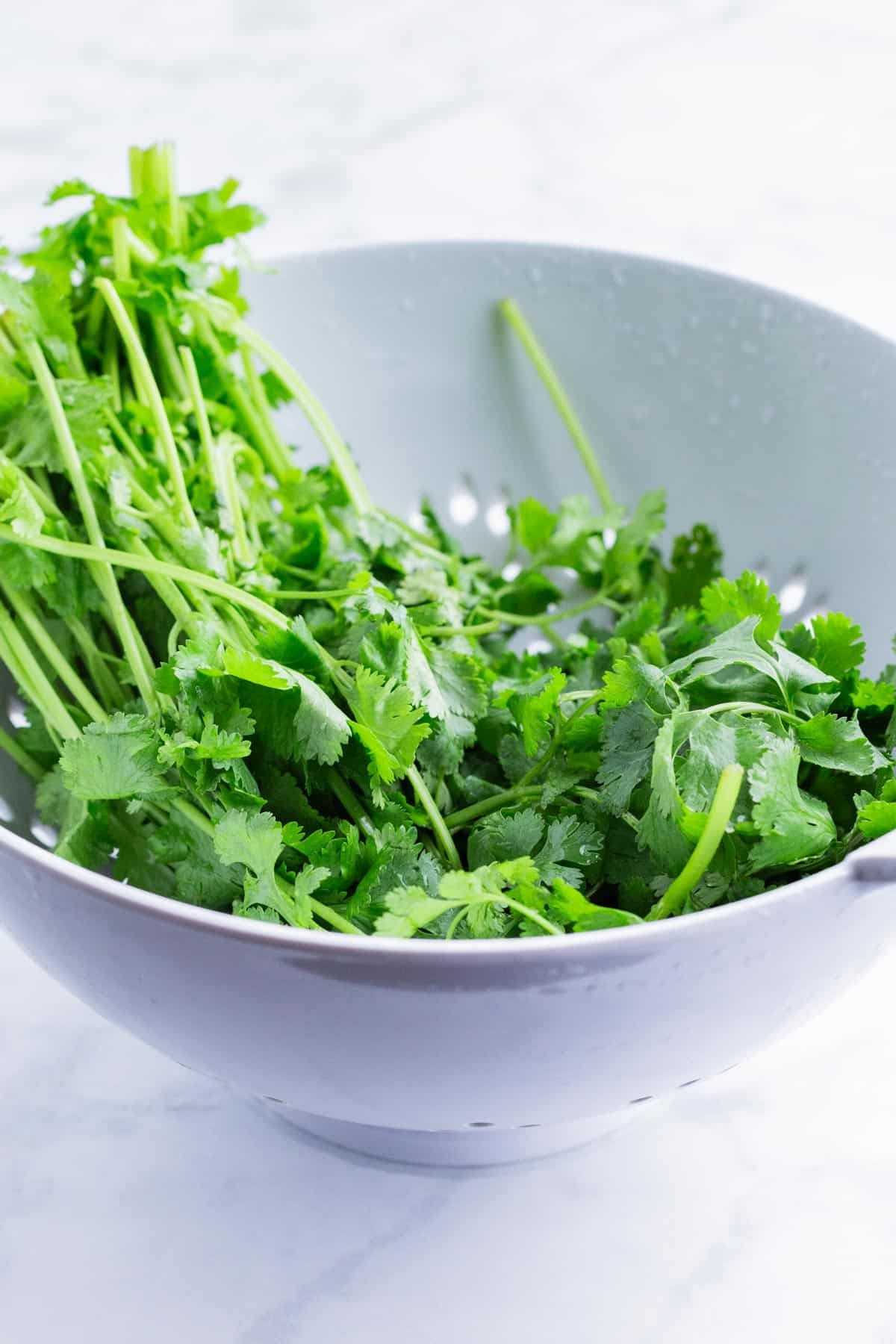
How to Clean Cilantro
The first step with just about any fresh herb is to clean it before using. Cilantro is quite a delicate herb, so you’ll want to take extra care.
Carefully place the cilantro in a colander and set it in the sink. Rinse with water for about 1 to 2 minutes while gently moving the leaves around. Sometimes dirt gets stuck in hidden places.
Then, spread the rinsed cilantro on a paper towel, then place another one on top. You can also use a salad spinner to remove the water.
The most important thing in this step is to ensure the cilantro is REALLY dry, or else it will stick together when chopping.
How to Chop Cilantro
Please see the recipe card below for ingredient amounts and more detailed instructions.
1. Remove the Long, Thick Stems
Remove the amount you need from the bunch. Store the remainder of the cilantro in a glass jar filled halfway with water in the fridge. Cover with a plastic bag for up to 2 weeks. (For more on this, check out How to Store Cilantro.)
Cut and remove the long, thicker stems by cutting where the stems turn more bushy.
*It’s essential that you use a really sharp knife. If you don’t already own one, consider a knife sharpener to keep all of your knives in their best shape.
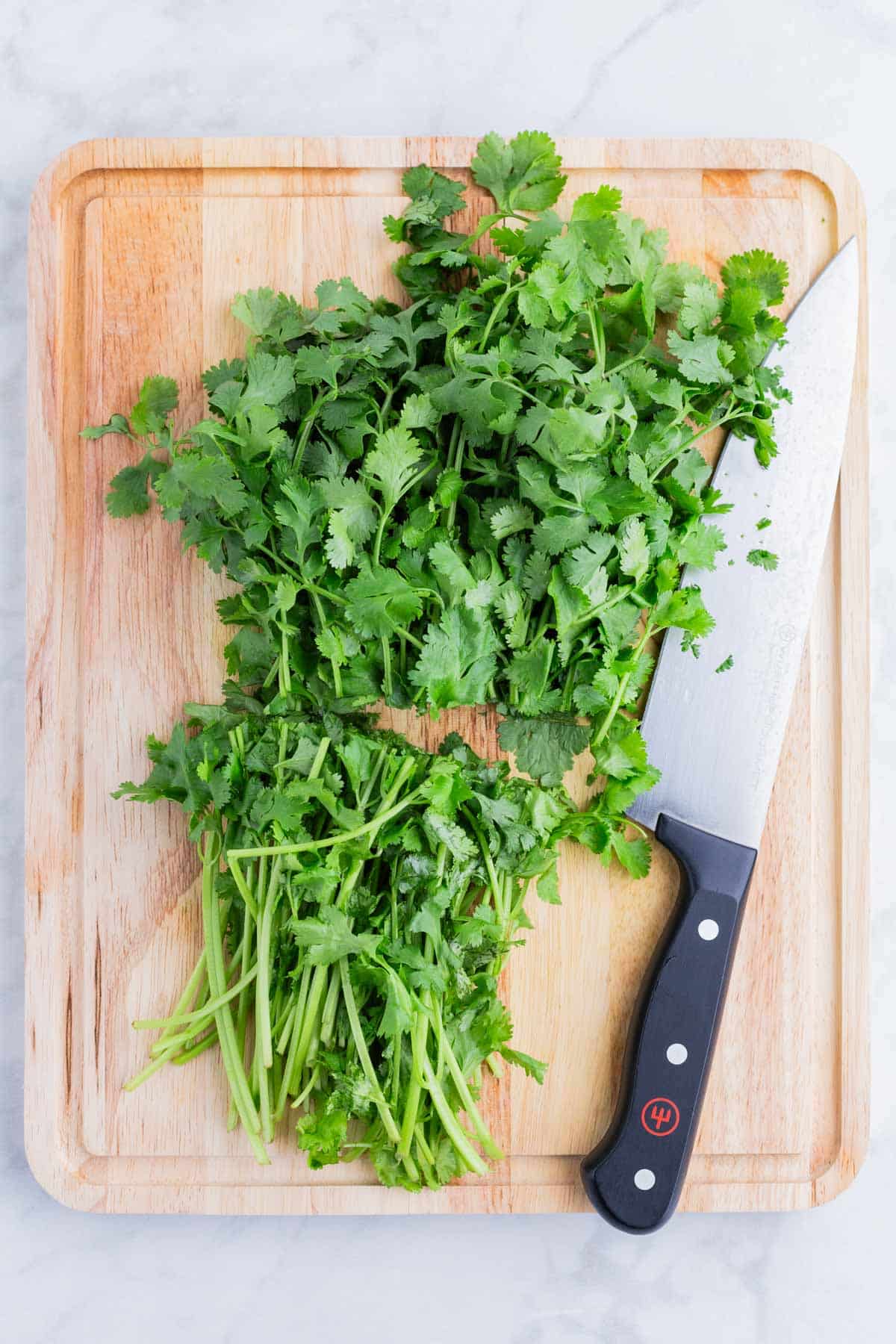
2. Finely Chop Cilantro Using Rocking Motion
Gather all of the cilantro you will be using into a pile on a cutting board. Starting at one end, cut across the pile in an up-and-down, rocking motion. It should be easy to move across the pile.
Then, turn the knife 90-degrees and repeat in a perpendicular direction.
You can continue rotating angles until the cilantro is as finely chopped as you’d like.
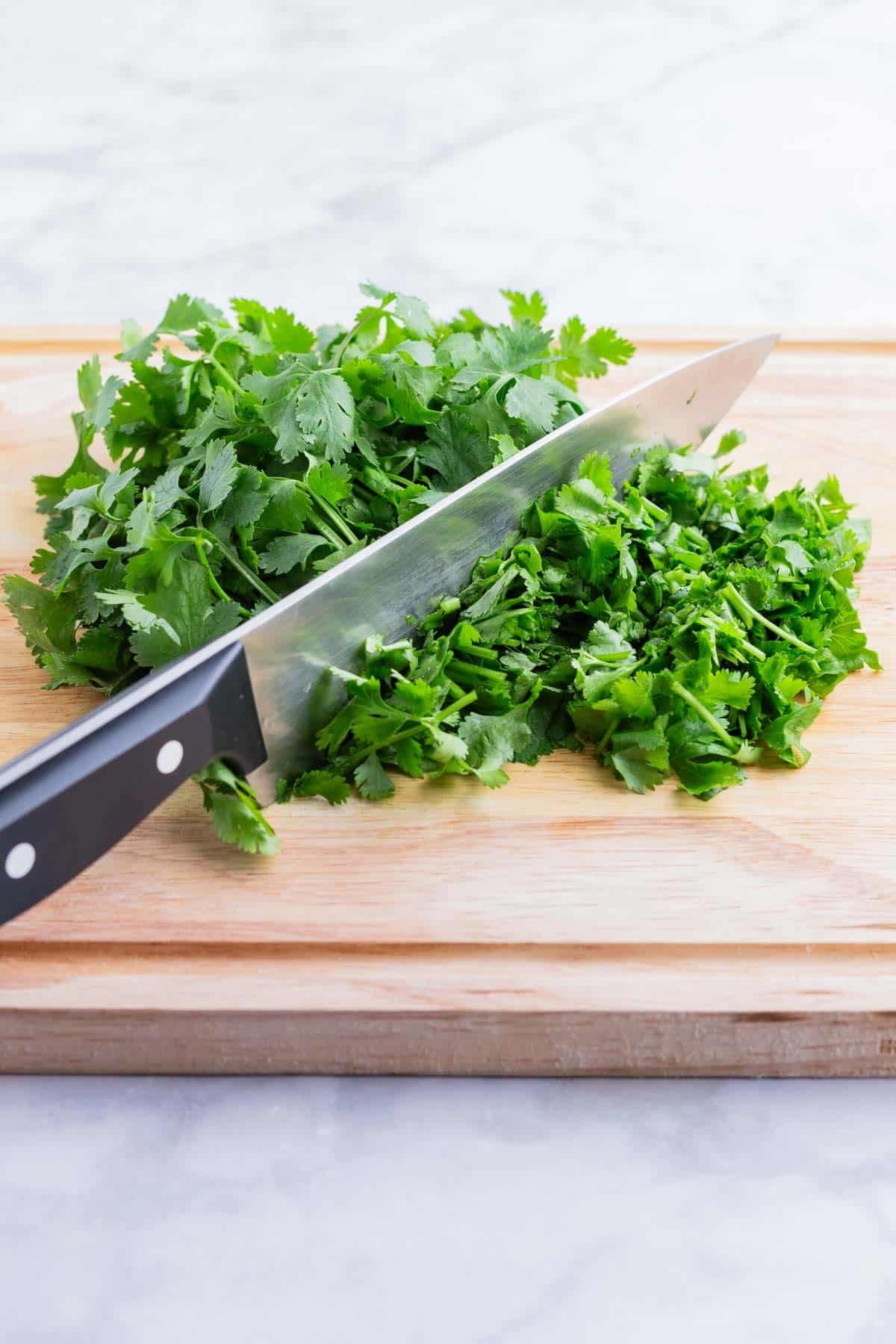
How do you store chopped cilantro?
Line an airtight container with paper towels, then spread the leftover chopped cilantro across them. Seal the container. The cilantro should last for up to 2 to 3 days.
How do you store a bunch of cilantro?
With cilantro still attached to the stems, simply place the entire bunch in a mason jar or large glass halfway full of water. Cover the cilantro with a plastic bag and leave the entire jar in the fridge for up to 1 to 2 weeks.
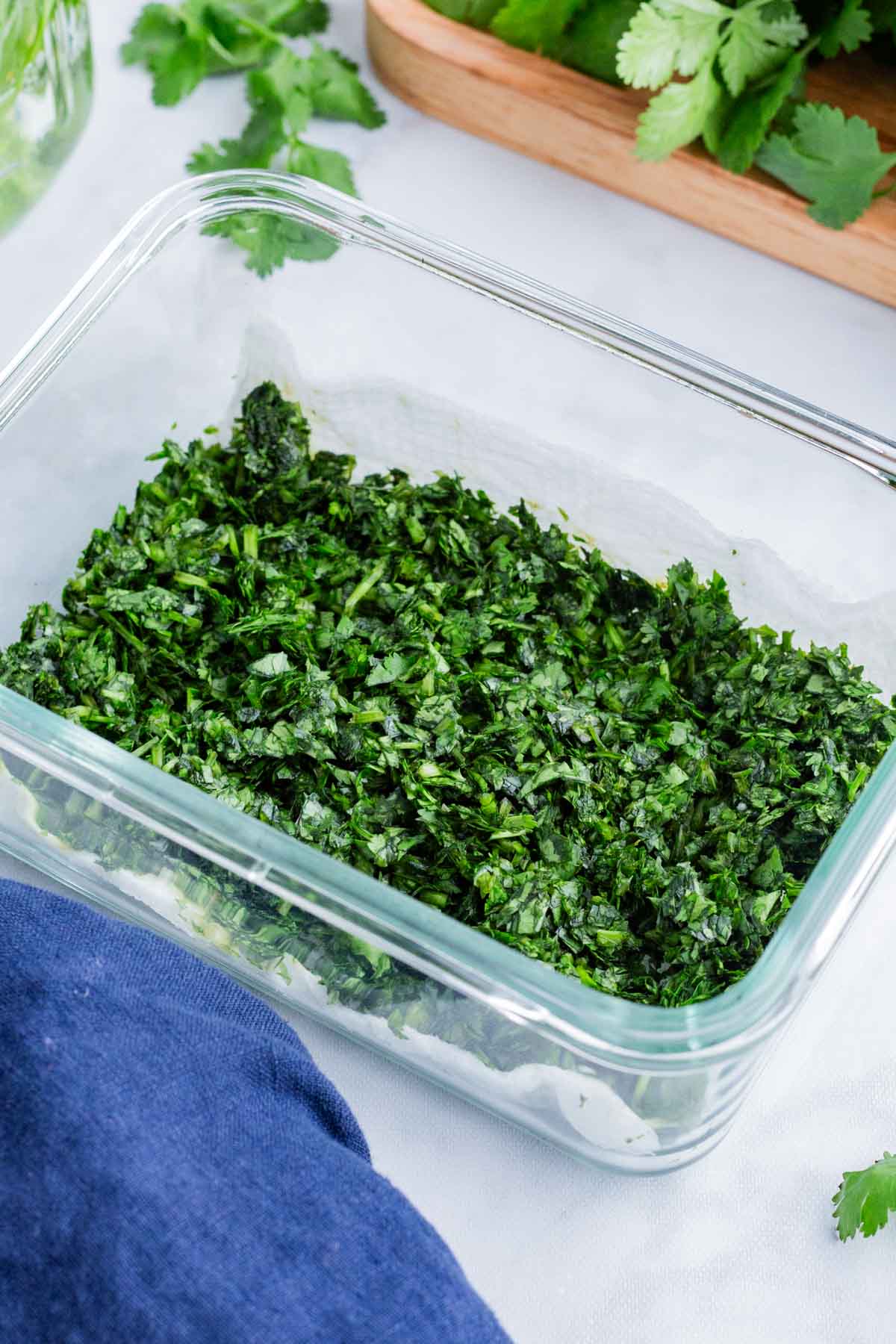
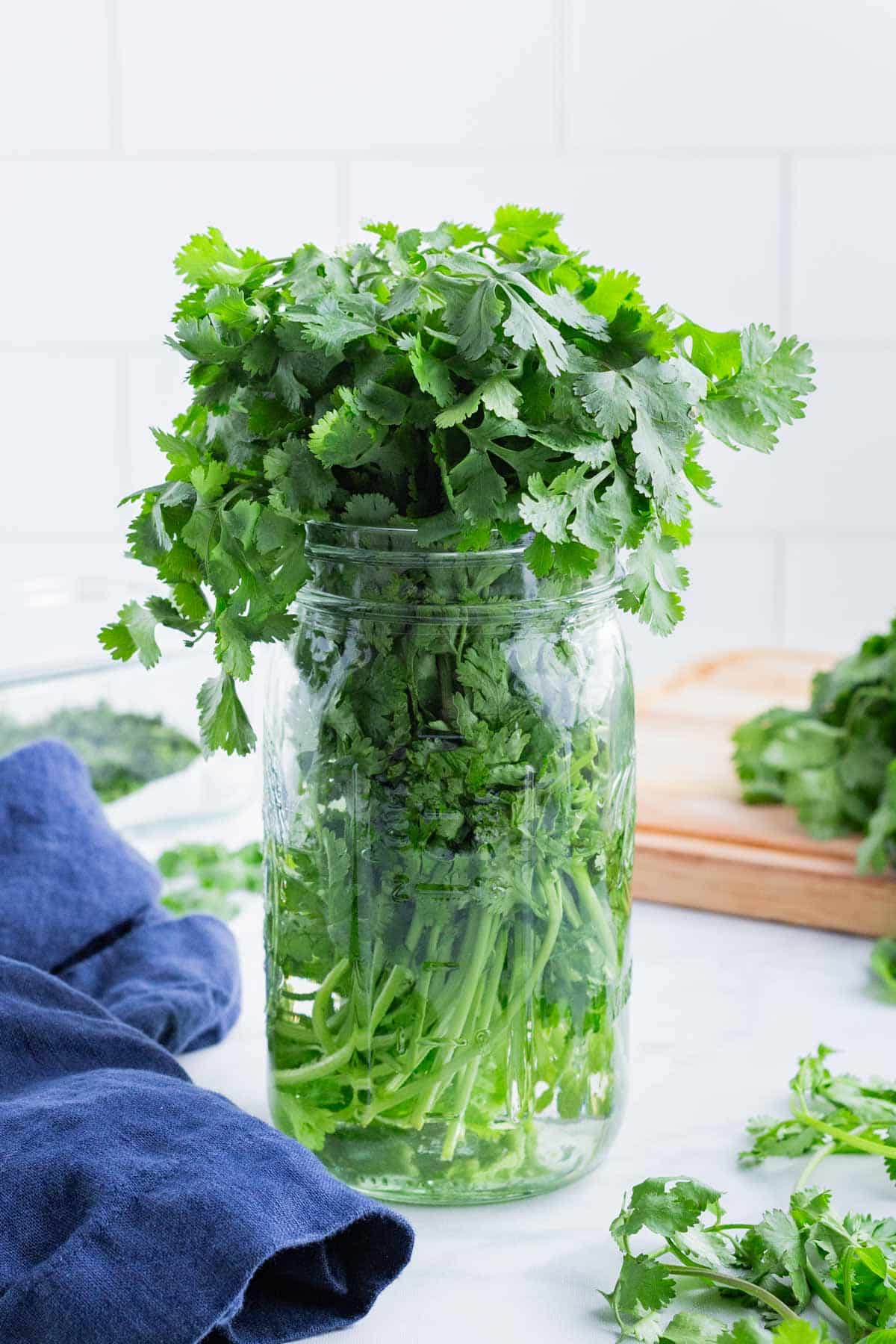
FAQs
While you can use a food processor, know the result will be quite liquid-y and mushy. You will not have leaves that add that beautiful pop of color.
When properly stored rolled or folded in a paper towel, chopped cilantro should last up to 3 days in the fridge.
Yes, cilantro and coriander are the same thing. In the United States, coriander often refers to the seeds of the plant while cilantro refers to the leaves.
You can always substitute the dried version of herbs for the fresh. Note that you will need to reduce the amount by quite a bit as dried herbs are more potent.
Recipes that Use Cilantro
Cilantro is in so many recipes, it’s hard to even start a list! But these dishes are some of the best.
Tap stars to rate!
How to Chop Cilantro
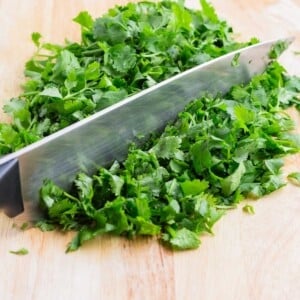
email this recipe!
Ingredients
- 1 bunch cilantro
Instructions
- Clean Cilantro: Add cilantro to a colander in the sink and rinse with water for 1-2 minutes while moving the leaves to release any bits of dirt that might be stuck. Dry between paper towels or use a salad spinner. (The drier it is, the easier it is to cut!)1 bunch cilantro
- Measure and Store: Remove the amount of cilantro you would like to cut from the bunch. Place the remainder in a glass mason jar filled halfway with water. Cover with a plastic bag and store in the refrigerator for up to 1-2 weeks.
- Chop Cilantro: Place the cilantro on a cutting board and cut where it starts to turn from a bush into only thick stems. Discard the stems. Bunch the cilantro up together and starting from one end, begin to cut using an up-and-down motion along the length of the cilantro. Once it is all cut, turn your knife 90-degrees and cut again in an up-and-down motion until it is either roughly chopped or finely chopped to your liking.
- Use immediately or store in an airtight container lined with paper towels for up to 2-3 days.
Tap stars to rate!
Nutrition
Nutrition information is automatically calculated, so should only be used as an approximation.

